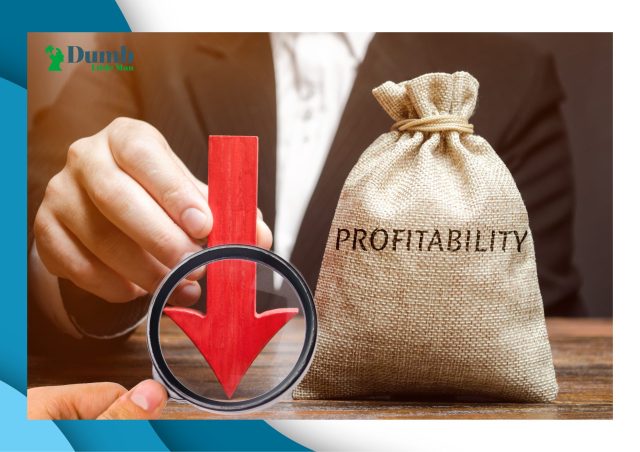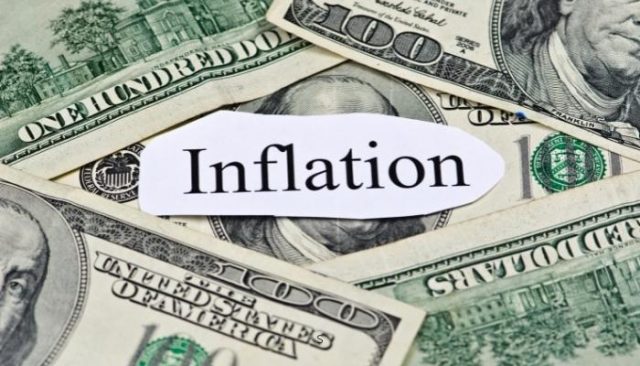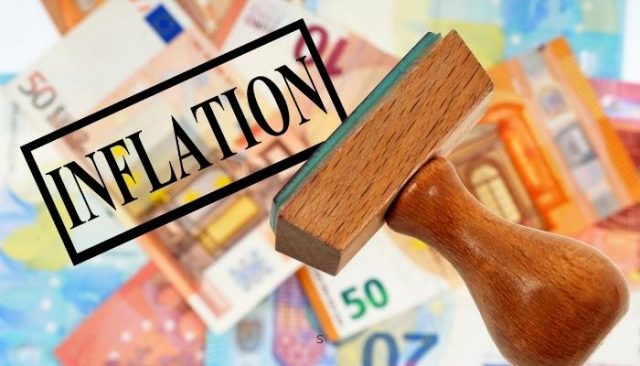How To Profit From Inflation – A Complete Expert’s Guide 2024
By Wilbert S
January 10, 2024 • Fact checked by Dumb Little Man

The gradual increase in prices of commodities, goods, and services with a risk of a loss of purchasing power over some time is known as inflation. Inflationary periods are part of every economy, but a quick diversion from the normal inflation rate poses a big challenge to investors. Investors are then faced with how to profit from inflation because it affects the economy and tends to cause significant economic disruption, negatively affecting many investments.
Some assets are referred to as inflation hedges, and one way to profit from inflation is by investing in tangible assets, such as stocks, real estate, or commodities. Money invested in these assets has historically outperformed in inflationary environments. However, past performance of assets does not guarantee future proceeds.
For this article, we have Ezekiel Chew, a seasoned and world-renowned Forex expert and mentor, to further enlighten us on how to profit during inflation. As an investor, have you wondered about ways to profit and invest during inflation? This article is for you as it contains everything you need to know about inflation; scroll down to the paragraphs below for more details.
What is Inflation

Inflation is defined in economics as the quantifiable measure of one quantity over quality and tracking the change rate in the prices of standardized baskets of goods. Inflation is otherwise known as a high rate of increased prices of goods and services alongside the risk of a possible loss of purchasing power. On the other hand is deflation, the opposite of inflation which is the decrease in commodity prices, goods, and services.
In every economy, inflation is generally defined as a price increase over a stipulated time. According to the US federal reserve board, an inflation rate of 2% is a minute and stable rate that enhances a growing economy by providing maximum employment and price stability. However, high inflation in any economy can have a devastating effect.
Inflation has a high potential to cause significant economic disruptions, which have unpredictable spiral effects on different categories of asset classes such as stocks and bonds. However, several asset classes do extraordinarily well in inflationary environments; such tangible assets include commodities and real estate.
Deflation, on the other side, boosts the unemployment rate in society and financially weakens the economy’s system by making it much more difficult to service debt. Sharp deviations in any economy from a stable inflation rate to either deflation or rising inflation is a massive challenge to customers and investors.
However, the purchasing power of one’s portfolio can still be maintained during inflation by some securities, such as securitized debt, secular stocks, and inflation-indexed bonds. Inflation-sensitive investments are accessed in several ways as both direct and indirect investments.
What are the Causes of Inflation

Inflation in any economy does not just occur but has to be triggered by some factors and events before it can happen.
Some causes of inflation include;
Cost Increase
The increasing cost of goods and services can result in a price increase in an economy. An increase in the cost of goods, especially popularly demanded goods, results in a price increase, and consumer prices are increased to make up for the extra cost is cost-push inflation.
Control of Money in circulation
Inflation occurs whenever the government moves to control the amount of money in circulation—controlling the amount of money in circulation by the government/authority results in a limited amount of money which causes a price increase.
Demand for Commodities
Once a particular commodity is highly demanded in the market without a commensurate level of supply, which leads to decreased supply, it causes the price to rise. For example, many people look forward to buying landed property in a particular location, but the landed property cannot go around for the buyers. In this case, there is demand-pull inflation with a price increase.
Increase in Labor
The wage-price spiral principle states that inflation is influenced by the link between increased costs and employee pay. Therefore, whenever there’s an increase in cost, employee demand to be paid higher, leading to increased prices and inflation.
Pros and Cons – Investing for Inflation

Like in every hedge, there are advantages and disadvantages; the same goes for an inflationary hedge. Inflation is seen as an opportunity for some investors to make more profits, especially when their asset class is not negatively affected by inflation.
Some pros and cons of investing for inflation are discussed below;
Investment pros;
- Investing for inflation helps investors preserve their investment portfolios’ worth
- Investors can benefit from diversification of holdings during inflation. With different skills, investors can combat inflation by engaging in profitable diversification by spreading the risk across various holdings
- Investor’s income purchasing power is maintained while investing for inflation
- Investing for inflation helps investors ease during inflation because they already have a plan beforehand; hence, they won’t make hasty decisions
Investment cons;
- Investors investing in inflation are exposed to more risks and diversion from their long-term goals
- In some asset classes, investing for inflation can lead to an overweight portfolio
Pros and Cons – Investing during Inflation

Generally, inflationary periods allow investors to revisit their financial status and make necessary adjustments for whatever lies ahead. During inflation, investors must ensure that their portfolio is balanced with an asset class that rules out the adverse effects of inflation by examining their portfolios.
There are some pros and cons to investing during inflation which are discussed below;
Investment pros;
- Investing during inflation would require and urge investors to consume immediately rather than later when the prices increase
- Investors with fixed-rate debt, such as a house mortgage, and those with long-term commitments will benefit more from inflationary periods
- For investors, a suddenly increased inflation rate would increase investment for solid asset classes that sustain value over a long-term period
- If the inflation rate is low and stable, it indicates a growing economy that doesn’t negatively affect investments
Investment cons;
- Inflation affects purchasing power and reduces it drastically, and individuals will only be able to buy little compared to before. This is because the economy is experiencing an increase in the exchange rate and currency devaluation
- During inflation, prices go higher throughout the economy and affect retail traders as we increase the cost of living for fixed-income earners like retirees and the elderly
Rising Prices vs Rising Costs

During inflation, two major forces are price and cost; either inflated prices induce increasing prices(cost) or increasing prices(cost) create inflated prices. However, both are linked together regardless of whichever occurs first.
Rising prices and rising costs are interwoven because they can trigger each other, eventually leading to inflation. Rising prices of commodities and goods can induce rising costs in other areas of the economy to balance the two.
On the other hand, rising costs of living, labor, and work can create inflated prices such that the purchasing power of goods becomes unbearable. This implies that one cannot do without the other as both are inextricably linked.
Effect of Inflation on Asset Values

Inflation is unpredictable because the impact of inflation on the economy and asset values cannot be guaranteed from past performance, even though some asset classes have been known to outpace inflationary periods.
Inflation positively affects the value of long-term commodities and fixed-rate debt securities because it will be impacted if interest rates begin to rise and devalue the interest rate payments and repays the principal amounts.
After correcting for inflation, money lenders are on the losing edge if the interest rate is lesser than the inflation rate, that is if the inflation rate exceeds the interest rate. This is because the only investments that outperform inflation are those guaranteed to generate more revenue and increase value when inflation increases, such as real estate, stocks, long-term bonds, etc.
Multiple Trading Features

Since inflation is defined as the increased price of commodities over a period, the level of that increase is stated as a percentage. There are, however, tools that are used in measuring the level of inflation but there are three major ones namely the Consumer Price Index(CPI), Personal Consumption Expenditures Price Index(PCE), and Producer Price Index (PPI).
The Consumer Price Index (CPI) measures the weighted average consumers pay for a standard basket of goods and services.
The Federal Reserve Board uses the Personal Consumption Expenditures Price Index (PCE) to measure inflation. Unlike the CPI, the PCE is a measurement tool that is a wider tool that is subjective to consumption measures that derive the Gross Domestic Product (GDP). Also, it is broader in the change in the price of goods and services consumers purchase.
The Producer Price Index (PPI) is a measurement tool for the weighted average of prices by domestic producers. It also includes the transaction price for the first commercial through many goods and services.
How to Profit from Inflation
As earlier mentioned, some inflation hedges are known to outpace during inflationary periods, which investors can also profit from during inflation.
Some of these inflation hedges include;
#1. Commodities

Some commodities include agricultural products, gold, raw materials, natural gas, energy stocks, and other precious metals essential for production. With an increase in demand, the price of the economy increases, and the cost of production to keep up with the demand increases.
Generally, commodities are regarded as a solid asset class during inflation; However, commodities do not pay dividends; they do not correlate to the popularly known asset class of stocks and bonds. They tend to go in an unrelated direction to others.
#2. I-bonds

During inflationary periods in the US, saving bonds becomes attractive investments because they guarantee to rise only during inflation. Just like TIPS, I-bonds provide certainty of gains and profits.
Aside from I-bonds investment yielding high profits, it also protects the asset value of a certain portion of an investment.
#3. Real Estate

Standard houses funded with low-interest and secure payments tend to do well during inflationary periods. As inflation rises, the value of the property increases while the regular monthly mortgage price is unchanged. Real estate is an investment asset based on accumulating equities that may boost your net worth in return.
Real estate investments can be made through REITs or mutual funds that invest in REITs
#4. Value Stocks

Value stocks are companies with very good earnings compared to their current share price. According to some reports, value equities outpace growth companies during inflationary periods. In addition, value stocks are recognized for having sufficient cash flow, which investors prize as the stock prices increases, and are also known to perform better during inflation than growth stocks.
Value stocks are less sensitive to interest rates hikes than growth stocks
#5. TIPS(Treasury Inflation-Protected Securities)

Treasury Inflation-Protected Securities TIPS are tradable US Treasury securities to defend against loss of purchasing power. TIPS profits from adjustments during inflationary periods, which are unavailable with traditional fixed-rate bonds.
Treasury Inflation-Protected Securities TIPS are considered part of a lower-risk portfolio for those investors who want purchasing power stabilization and long-term investments. TIPS also pays interest twice each year at a fixed interest rate.
TIPS are government-issued bonds that help protect you from inflation because their principal rises when inflation increases and the value of the interest payments also rises and falls with inflation. Adding TIPS can help balance out your fixed income since they’re indexed to inflation.
Best Stocks and Forex Trading Course

You can become an expert forex trader by enrolling in the Asia Forex Mentor course by Ezekiel Chew. This well-known online course on forex trading has helped tens of thousands of retail and institutional forex traders earn millions of dollars through forex trading over the years.
If you want to make six figures for each trade but don’t know how to accomplish it or if you have tried other methods but they failed, look no further because this course is for you.
This course is a comprehensive One Core Programme that ranges from beginner to advanced level to prepare a trader to use Ezekiel Chew’s Method of Trading, which is supported by mathematical probability, to trade profitably. He is the mentor of numerous banks and financial institutions.
Through his well-known online forex trading school, he has coached thousands of retail traders in cities across Asia, the UK, Hong Kong, and the rest of the world. Additionally, he has provided training to banks and other financial institutions, including DBP, the second-largest state-owned bank in the Philippines with more than US$13 billion in assets.
The training will be essential if you want to quadruple your income quickly. Amazingly, beginners can enroll in the free version of the course and take on the premium version after finding it satisfactory.
| RECOMMENDED TRADING COURSE | REVIEW | VISIT |
|---|---|---|
 | #1 Forex, Crypto and Stocks trading course. Ranked most comprehensive by Investopedia and Best by Benzinga. Free to Try! |  |
Best Stock Brokers
| Broker | Best For | More Details |
|---|---|---|
 | Advanced Traders Read Review | securely through Tradestation website |
 | Intuitive Platforms Read Review | securely through Tradier website |
 | Powerful Services at a Low Cost | securely through Tradezero website |
 | Professional Forex Traders Read Review | securely through Interactive Brokers website |
Conclusion: Inflation
Inflation is a period of price increases that are bound to happen. Hence, investors should always be prepared to profit from it by diversifying holdings and investing in a solid asset class. However, don’t abandon your long-term goals at the mercy of inflation periods that is unpredictable and uncertain. Also, don’t stray away from your investing plans.
However, inflation should not affect investments; inflation should not stop investors from achieving any specific goal or target for their investment plans. So don’t become obsessed with the inflation strategy; get out of your risk tolerance zone.
This is also an investment like every other; past performance gives no guarantee because inflation hedges don’t always follow predictions. After all, the table might turn against asset classes consistently outperforming inflation during unique economic conditions.
Don’t allow inflation fixation to drive you away from your safety zone for risk tolerance; hence, follow your investment portfolio and don’t go beyond your capacity. Profiting from inflation is like every other investment hedge with pros and cons.
There’s no guarantee of total success in investment because market conditions and past performances cannot be used to determine future results. Investors should see an investment adviser before delving into any investment option because traditional inflation hedges don’t always go as planned.
Inflation FAQs
What Investments do well during inflation?
Inflation is a natural episode with many ways to waver against it, one of those ways is an investment in things that do well during inflation.
Some things an investor can invest in to sway against inflation include Real Estate Investment Trusts (REITs), leveraged loans, the Bloomberg Aggregate Bond Index, commodities, shares, bonds, Gold, etc.
Who gets maximum profit during inflation?
Debtors, because inflation permits debtors to pay back creditors with money whose value is worth less than when it was initially obtained, which profits debtors. Debtors also possess additional benefits during a recession.
What can I sell during inflation?
Consumer fixed stocks, such as food and energy, do well during inflation because demand is inelastic, giving these industries more pricing leverage than other industries because they can inflate their prices more rapidly than other industries.
Wilbert S
Wilbert is an avid researcher and is deeply passionate about finance and health. When he's not working, he writes research and review articles by doing a thorough analysis on the products based on personal experience, user reviews and feedbacks from forums, quora, reddit, trustpilot amongst others.


